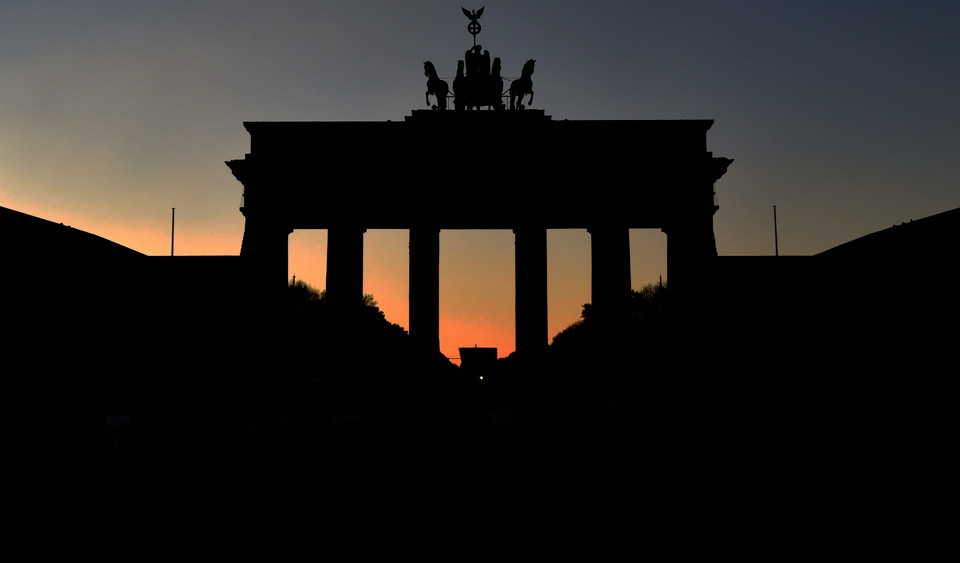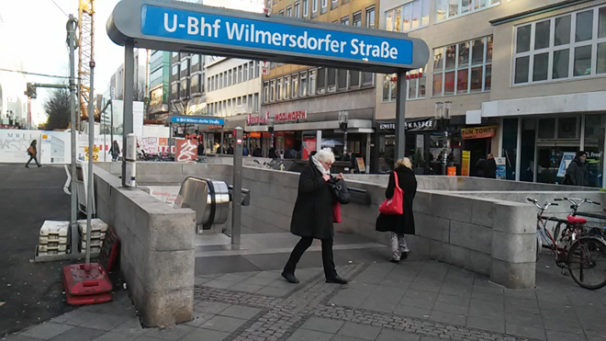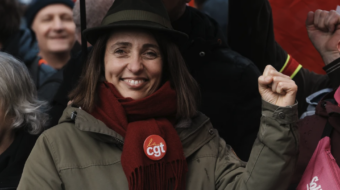
BERLIN, Germany – The Left Party’s 7,000-plus membership here approved a deal yesterday that pushes out the conservative Christian Democrats and puts control of Berlin’s city government in the hands of its first-ever “red-red-green” coalition.
The coalition gets its name from the colors of the parties involved: red for the Social Democrats (SPD), red for the Left Party (die Linke), and green for the Green Party.
The final agreement comes almost three months after the Sept. 26 “Landeswehr” elections in Berlin. These state elections happen on different dates for each of the sixteen states that constitute Germany. The city of Berlin, like Hamburg and Bremen, constitutes a state by itself. Besides Berlin, five of the sates are in what was formerly the German Democratic Republic (GDR, or East Germany), while the rest are in what was formerly West Germany.
Berlin goes left
Under the agreement, the SPD picks the mayor and the Left Party selects the Deputy Mayor. The ruling Berlin Senate will have four SPD members and three each for the Left and the Greens. The SPD mayor and the Left’s Deputy Mayor are also part of the Senate.
The major role for the Left Party represents a blow to the right wing here which continues to accuse the former of never having made a total break with the GDR past. The Left Party traces its roots to a union of West German socialists and remnants of the old Socialist Unity Party (SED) which governed the GDR. That country was absorbed into the Federal Republic of Germany after reunification in 1990.
The red-red-green coalition has already vowed to move aggressively against skyrocketing rents resulting from gentrification in neighborhoods all over Berlin but particularly in the eastern part of the city.
“The problem is severe in the east,” said Victor Grossman, a Berliner who lived in East Berlin when the wall came down. Grossman, a journalist who writes for numerous left wing publications in Germany and also for People’s World (see his articles here), said older East Berliners and working-class people are being pushed out of their homes with some ending up homeless on the streets here. In the GDR days, some of these folks paid only a few marks a month for rent.”
The new coalition of the left also aims to halt ongoing privatization schemes backed by the conservative Christian Democratic Union (CDU) party. In Berlin, the CDU, the party of Chancellor Angela Merkel, has been trying to sell off parts of the city’s U-Bahn (subway) system and S-Bahn (elevated train system that circles the city) to private firms.
The red-red-green coalition also plans, at the urging of the Left Party, to end the current tracking system in city public schools where children, as early as 4th grade, are tracked to either prepare them for “jobs” or college. “The tracking system really is used against the poor and against immigrants,” Grossman said. “The left does not want children to be forced out of preparation for higher education at such an early age.”
The coalition also vows to end various schemes that would privatize gas and electric services, and it is promising to build new public housing.
The ability of minority parties to come together and from a coalition government such as this one is a function, in part, of the parliamentary system here which voters see as more democratic than the electoral college and other parts of the federal system in the United States.
Merkel under increased pressure
The change for the better in Berlin’s government started here with the elections Sept. 26.
The CDU got its worse totals ever in Berlin with only 21 percent of the vote. The SPD, which had been in coalition with the CDU, also scored its worst-ever vote, with just 21 percent. The two “major” parties then were short of what they needed to form a majority.
The Left Party earned 16 percent of the vote and the Greens got 15 percent. The neo-Nazi Alternative for Germany Party (AfD), received 14 percent.
It was clear then that if the Social Democrats, the Left, and the Greens could get together, it would be possible to ditch the CDU, brush the AfD aside, and appoint the Senate that runs Berlin.
The dumping of the CDU in Berlin, inevitable since the elections, has contributed to the pressure on Chancellor Merkel. Seeing her party’s vote totals dwindle not just here but elsewhere in the country has her worrying about incoming fire from various sources. She is most worried about critics in her own party who say she is too pro-immigrant, having favored the entrance into Germany of hundreds of thousands of Syrian refugees. In Bavaria, in particular, where her party members are further right than they are nationally, she feels she has to show her right-wing credentials.
She also wants to cut off political threats coming from the far-right AfD. “Merkel’s concerns about the critics she has in her own party and her fear of the AfD are the reasons she came out for a ban on the burqa,” said Grossman. “She feels she has to protect her right flank but there are people in the center who have supported her because they like what they see as her humanitarian side. She will lose them. I don’t know why she originally supported a humane immigration policy, maybe its her background having come from the GDR, having been educated in a more humanitarian way.”

Berlin as a national template?
Activists in the Left Party would like to see the Berlin experience happen nationally. They want a similar red-red-green coalition to come out of the national elections later this year, but it is too early to tell whether anything like that is possible.
The national polls now have Merkel’s Christian Democrats at 35 percent, the SPD at 22 percent, the Left Party and the Greens at 10 percent each, and the Free Democratic Party (FDP), a small right-of-center party, at five percent – the minimum support needed to get a seat in the parliament.
Although the neo-Nazi AfD has 13 percent nationally, there are areas of the country where its support is significantly higher. The party’s strongest support, 24 percent in the polls, ironically, is in the northeastern district of Mecklenburg, which was part of the GDR.
The population in Mecklenburg was actually opposed to absorption of the GDR into West Germany. The area is made up of agricultural workers who once had, in the GDR days, their own homes and plots of land. They belonged to cooperatives and collective farms, but today they have lost those things because of the encroachment of agri-business.
Since reunification, the plentiful manufacturing jobs that existed during the GDR days have also disappeared in Mecklenburg, leaving a poverty-stricken population in many hollowed-out towns. Into that situation came the AfD with its propaganda blaming the “establishment” and immigrants.
“The story of what happened up there,” Grossman said, “seems to have lots of parallels in parts of the United States where people similarly hurting economically went over and voted for Trump.”












Comments